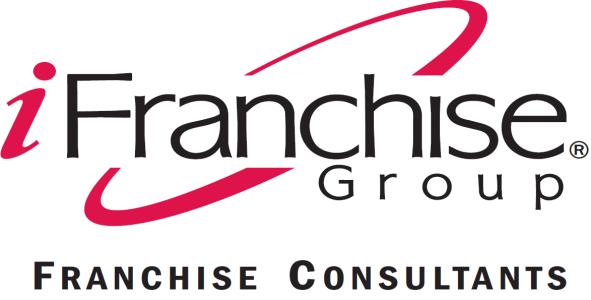
Is Your Business Franchisable?


The Decision to Franchise
◦ How Franchising Works
◦ Alternatives
◦ Quality Control
◦ Legal Aspects of Franchising
Marketing Your Franchise
Selling Your Franchise
Creating a Successful Franchise Strategy
◦ Structural Decisions
◦ Financial
◦ Organizational Development
Questions and Discussion


Wearegoingtotrytocoveragreatdealofinformation,soweare askingthatyouholdyourquestionsuntiltheendofthesession unlesstheyareonaparticularslide.
Group.

More hands-on experience than any other firm
◦ Consultants with over 800 years of franchise experience
◦ 98 out of the top 200 franchise companies
◦ Offices in Chicago, Dallas, Los Angeles, Boca Raton, Miami-Fort Lauderdale, Atlanta, Toronto, Dubai, UAE, and Riyadh
More “senior level” experience
◦ Hands-on experience at start-up and established franchisors
◦ Former CEOs, CFOs, EVPs of more than 50 different franchise companies
Adia (now Adecco), Armstrong Tile, Auntie Anne’s, Dunkin Donuts, LINE-X, Pearle Vision, McDonald’s, PIP Printing, Schlotzsky’s, Snap-on Tools, Snelling & Snelling, and other national brands
The ability to bring more resources
◦ Faster completion
◦ Ability to assist in several areas simultaneously
Breadth across four functional areas
◦ Strategic planning
◦ Quality control
◦ Marketing
◦ Organizational development
Franchise experience in 50+ countries

Five years in a row, voted the #1 Franchise Consulting Firm in North America in an independent survey of over 1,000 franchisors
Numerous awards and publications

Reserved.
Group.

A Premier fully-integrated public relations and digital media agency specializing in franchised businesses
◦ Public Relations
◦ Digital Lead Generation
◦ Search Engine Marketing
◦ Content Marketing
◦ Social Media Publishing
◦ Pay-Per-Click Advertising
◦ Website Design & Development
Both franchise development and consumer branding

Team with Hands-On Franchise Experience
◦ Real world experience with nearly two dozen brands
◦ Efforts have resulted in tens of thousands of franchise leads
◦ And many hundreds of franchise sales
Recent honors and awards:
◦ Top supplier from Entrepreneur five years in a row
◦ Best New Agency (Ragan & PR Daily Ace Awards)
◦ PR Agency Elite – Mission: Fit to Own (PR News)
◦ Best Website Finalist (PR News)
◦ Best Media Relations Campaign Finalist (PR News)
◦ Best SEO Finalist (PR News)

Group.





Considering franchising your business?
Franchising less than one year?
Franchising more than one year?
Wearehappytosendyouacopyofthis presentation,soyoucanlimityournotetakingif yousodesire. Also,happytosendacopyofa videoandabookifinterestedinexploring further.


FTC rule 436 cites three elements that legally define a franchise:
◦ The use of a common trademark
◦ The exercise of control or provision of assistance
◦ The collection of fees, royalties, mark-ups or other monies from the franchisees
If you have all three elements, you are a franchise, regardless of what you call it
Some state definitions vary, but are similar
Do not have to use the “f-word”


Franchisee typically pays
◦ Franchise fee average about $35,000 to $45,000
◦ Royalty range between 4% and10%
◦ Advertising range between 1% and 2%
◦ Franchisor will often sell product to the franchisee
Franchisor typically provides
◦ Use of trademark
◦ Initial training
◦ Operations manual and systems
◦ Ongoing supervision and support
◦ Marketing support
◦ Other support services like purchasing, R&D, etc.

Group.


Leverage Capital
Speed of Growth
Motivated management
Reduced risk
Few operational concerns
Higher quality
Organizational leverage
Must “share profits”
◦ Franchise unit will usually generate less profit than a profitable unit
◦ But far more profit than an unprofitable company-owned operation
Less Control
Good relations with franchisees take work

Group.
MYTH: Litigation





The decision should be goal driven
◦ Distance
◦ Speed
◦ Obstacles
◦ Risk tolerance
A Volvo or a Rocket Ship?
Don’t have to choose only one vehicle
Don’t decide to franchise (or whatever)
◦ Instead, decide:
Do I want to build a third-party distribution channel?
Do I want that channel to be branded?
If it is branded, do I want to control quality?
How do I want to be paid?
The law (or your lawyer) should never dictate your good business decisions





Successful prototype
Credibility
Differentiation
“Sizzle”
Buyer appeal
Value Proposition
Sell?
Affordability
Profitability
R.O.I.?
Teachability
Adaptability
Systemization
Clone?
Market trends
Capital
Management
Succeed?

TheKeyisCreatinga “Win-Win-Win” Scenario

The franchisee should make a return on the time they invest
◦ No different than if they were to go out and get a job
◦ Salary should be “market rate”
The franchisee should make a return on their investment
◦ No different than if they invested in a stock
◦ Return should be commensurate with what they would make if they were to make an investment of similar risk
◦ Ability to sell back their investment at the end of the term
Franchisees expect that they will need to build their business
◦ Will expect these returns in three years or less
Annual Cash-on-Cash R.O.I. at the unit level – our criteria
◦ 15% for Owner Operators
◦ 20% for Area Developers (who will support additional overhead)
Occasional exceptions

Group.





Perfecting the business
◦ If you have perfected your business, SELL IT!
◦ If you are standing still, someone is gaining
◦ McDonald’s in 1955
Quick vs. Slick
◦ If you are going head to head with more established competition and your business model is not highly differentiated – be sure to refine first
◦ More unique, the sooner you should franchise
Risk: Someone with a camera and a notepad
First mover advantage
Who was the first . . . ?

Group.












Business plan/strategic direction
Legal documents and registrations
Operations manuals
Training program
Quality control mechanisms and systems
Effective marketing plan
Franchise collateral materials
Website and web-based marketing
Advertise
Design and implement a sales strategy
Staff an organization to implement the plan
Capital

Group.



You are entering a new business.
Goals drive your business. Start with support and cost structure.
What do you need to do to help your franchisees succeed?
Don’t rely on guesswork: The futureofyourbusinessisat stake.

Financial analysis is essential.
Reverse engineer your success.


There are certainly a large number of neophyte franchisors who take a “Ready-Fire-Aim” approach
◦ Often rely on guesswork
◦ Or analysis of what comparable franchisors are offering to make major decisions
“Me-Too” is not a strategy – it is a recipe for disaster!
◦ Uniqueness is important to success, whether achieved through the business model, marketing, support, structure, fees, or marketing.
◦ Me-Too assumes that business economics are the same, support is the same, and that a new franchisor will simply differentiate themselves based on great franchise marketing
◦ But established franchisors often have many advantages not shared by newer franchisors
◦ So the Me-Too strategy that is taken by many new franchisors can actually be responsible for their failure

Group.

The impact of a 1% royalty mistake
◦ If a single franchisee generates $500,000 in revenue
◦ 1% = $5,000 off the bottom line
◦ But franchisees will never tell you that they are paying too little and often inertia will keep the royalty where it is at for years

Group.

Many people think franchises have lower level of quality – just the opposite is true
The Quality Trade-Off
◦ More difficult to control
◦ Higher Caliber
◦ More highly motivated
Longer term Studies show franchisees outperform Anecdotal evidence
◦






Role as a sales tool
Role as a training tool
Role as a reference tool
Role as in reducing liability
Extension of the legal documents
TheTableofContentsisaRequiredDisclosureItem


Discussions with Key Stakeholders
Review existing material, forms, & documentation
Develop preliminary outline
Determine gaps in current documentation
Assign responsibility for content creation
Identify Subject Matter Experts for gaps
Interview
Subject Matter Experts
Onsite observation of units & documentation
Resolve Best Practices Conflicts
Draft material to cover all identified gaps

Group.
Edit all material into common style & “voice”
Revise first draft of Operations Manual based on client input

Faster growth requires formal training programs
◦ For your staff
◦ For franchisees
Focus on training the trainer (your franchisee)
◦ Franchisee will train their staff
◦ Should have tools to do so
Video pushes QC to lowest level of organization
On-line training decreases costs, increases quality, and can decrease liability
◦ Customized by employee
◦ Document what is reviewed and test scores
◦ Lowers on-site training time and costs for both the franchisor and the franchisee

Group.



The FTC rule
◦ Disclosure document with 23 items
◦ Disclosure fourteen days prior to sale
◦ Final Franchise Agreement seven days prior
◦ Financial Performance Representations
◦ Consistency with Franchise Disclosure Document



State regulations
◦ 14 registration states
◦ Regulate advertising
◦ Business opportunity states
◦
Determining applicability (even definitions vary – NY)


Franchise Legislation Within the US 2023
Legend:

States having no franchise or filing requirements
States having franchise registration requirements
States where franchisors must file to comply with business opportunity laws
Notes:
• Within Indiana, Michigan and Wisconsin, registration is effective immediately upon the application being filed.
• Florida, Nebraska, Kentucky, Utah and Texas require a simple exemption filing. Once that is filed, a franchisor can begin to offer franchises.
• South Carolina provides an exemption if the franchisor has filed a State trademark registration.
• Connecticut, Maine, South Carolina and North Carolina provide an exemption if the franchisor has obtained a Federal registration of its trademark
• Six States require registration of advertising prior to use. (CA, MD, MN, NY, ND, WA)
• New York, Oklahoma and Rhode Island require the FDD be provided to a prospective franchisee at the earlier of (i) the 1st personal meeting held to discuss the franchise or (ii) 10 business days before any agreements are signed or any monies paid (including fully refundable deposits).
• Michigan and Oregon require the FDD be provided to a prospective franchisee 10 business days before any agreements are signed or any monies paid (including fully refundable deposits).
• Many states also have State Relationship Laws that impact issues such as franchise termination or non-renewal. Your franchise legal counsel can advise you on relevant issues involving these states.
• Check with your franchise legal counsel for additional details and updates which are available.

Cannot provide Earnings Claims unless in Item 19
◦ No information on sales
◦ No information on earnings
◦ Limited information on expenses (costs as a percentage of total costs are ok)
◦ Start-up costs are included in Item 7 and must be disclosed
Advantages and disadvantages
◦ Must be appropriate
◦ Sell faster?
◦ More or less litigation?
50% choose not to do Earnings Claims
◦ For good reasons, bad reasons, or bad information

◦ Selling franchises in the face of no FPR
Group.



Start locally, then regionally
◦ Cluster support
◦ More effective franchise advertising
◦ Consumer advertising economies
◦ Brand building
◦ Buying economies
Don’t expand faster than your support capability
◦ Quality control is key
◦ Nothing sells franchises as well as happy and successful franchisees
◦ Three hour drive time


Different franchises require us to target different types of franchisees –affecting the media and message used for effective marketing.

Identify your prospect as narrowly as possible
◦ Survey Competitors
Background
Hot Buttons
Media
◦ Survey Top Franchisees
Characteristics of top performers
Are we selecting the right lead generation strategies?
Is the advertising message appropriate for our targeted franchisee profile?
Are we targeting the right prospects and using the right media based on our development strategy?


















